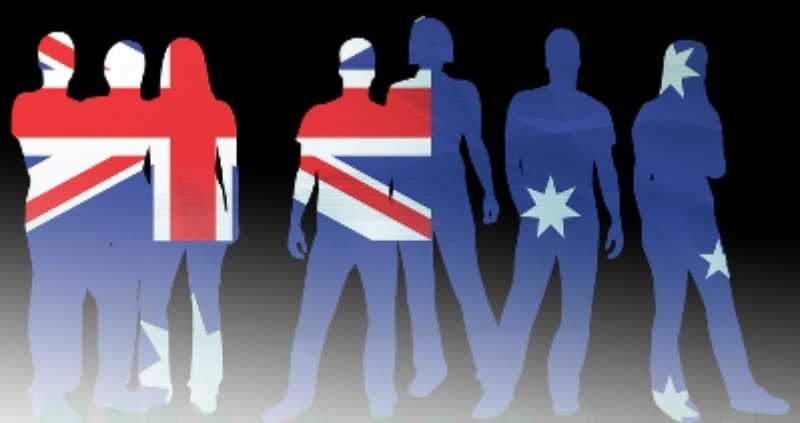Would my family pass an ‘Australian Values Test’?
When I was growing up, there were times when my corner of Sydney did not feel all that Australian. As newly arrived immigrants, my family got our start sharing the house of a Korean minister in Campsie, a working-class suburb with a large immigrant population. My parents set up their businesses in Eastwood and Chatswood, and served a predominantly Asian client base. On weekends, we shared the table with Korean friends and sang Korean hymns at church. This was a fact that I, with a teenager’s allergy to outsiderness, resented. I measured our successful integration as migrants by our proximity and resemblance to the majority of Australians — and by this measure, we were failing. Recent events in Australian politics suggest that my younger self was not alone in his view. Ahead of the July 28 “Super Saturday” by-elections, Prime Minister Malcolm Turnbull invoked the need to balance diversity with “integration” around “Australian values.” He made his point through a couple of implications: first, a warning about Sudanese gangs in Melbourne, followed by a suggestion that Australia may add a “values test” for permanent residents. The minister for citizenship and multicultural affairs, Alan Tudge, was less subtle. He traveled to London in July to report on the challenges facing Australian multiculturalism. “Our ship is slightly veering toward a European separatist multicultural model,” he claimed, “and we want to pull it back to be firmly on the Australian integrated path.” When Tudge vowed a “muscular ongoing promotion of our values,” I thought about my family. My parents are well positioned for the kind of integration that this Australian government seems to envision: They are skilled professionals; they speak English. Like many migrants who have lived under authoritarian rule, they believe in “the West,” its civilization and its values. Despite this, my parents rely on a small, insular, Korean-speaking immigrant community in nearly every aspect of their lives. As we began settling down in Sydney, relationships forged only of distant connections brought us temporary housing, home-cooked meals and more advice on navigating public school districts than we could manage. When my parents opened their business, their immigrant neighbors came with lucky bamboo in clay pots and became their first clients. Those who are most concerned about ethnic segregation tend to conceive of minority communities in almost entirely negative terms — as groups built around the rejection of the values, lifestyles and networks of the majority culture. As a result, they overlook all of the good things that ethnic communities provide. The benefits of belonging to migrant communities are, in a vast majority of cases, unrelated to criminal intent or religious fervor. They arise from essentially human needs: economic opportunity, knowledge networks and relief from the stresses of migrant life. The government’s recent push on integration at once insisted on the strength of Australian multiculturalism and warns of its vulnerability. “Australia has arguably been the most successful country in the world,” Tudge claimed of our multicultural model but said we must now defend against those “who not only reject our values but want to use violence to destroy them.” This strategy, which combines the rhetoric of supremacy with that of emergency, has long been a feature of Australian immigration politics: In 2001, Prime Minister John Howard ushered in a new era of alarmism over unauthorized immigration by declaring that we, in the “best country in the world in which to live,” will “defend our borders.” The 2005 Cronulla race riots rallied around twin slogans: “Aussie pride” and “Save ‘Nulla.” Whether migrants are wiling to integrate depends, in my experience, on their perception of the majority’s attitudes toward them. For many of us Australians, that perception is refracted through the living memory of decades of divisive dog-whistle politics. In light of this history, the singular emphasis on integration signals that some Australians are unwilling to discuss our multiculturalism on equal terms. The proposal for an Australian values test, despite its best intentions, follows a pattern of displacing responsibility for our society’s shortcomings onto migrants. I want to be fair. I have lived in countries (most recently China) where belonging to a nation requires that you were born there, often to a specific ethnicity. What we have in Australia is as rare as it is imperfect. But to advance as a multicultural society, we must focus not on the entitlements or responsibilities of migrants alone but on the collective task of building an inclusive society. Migrants to Australia are familiar enough with tests. Growing up, I saw immigrant families huddle together at libraries and community centers to prepare for their citizenship quiz. My parents speak of the daily trials of moving a young family to a new country and of growing old in an adopted home. As Australians, we should turn our attention to the question facing us as a nation: Does our multiculturalism, and the politics that surround it, live up to our values? We might then pass the Australian values test — not some written exam, but the test that in the ordinary course of events we face every day.
Related Posts

